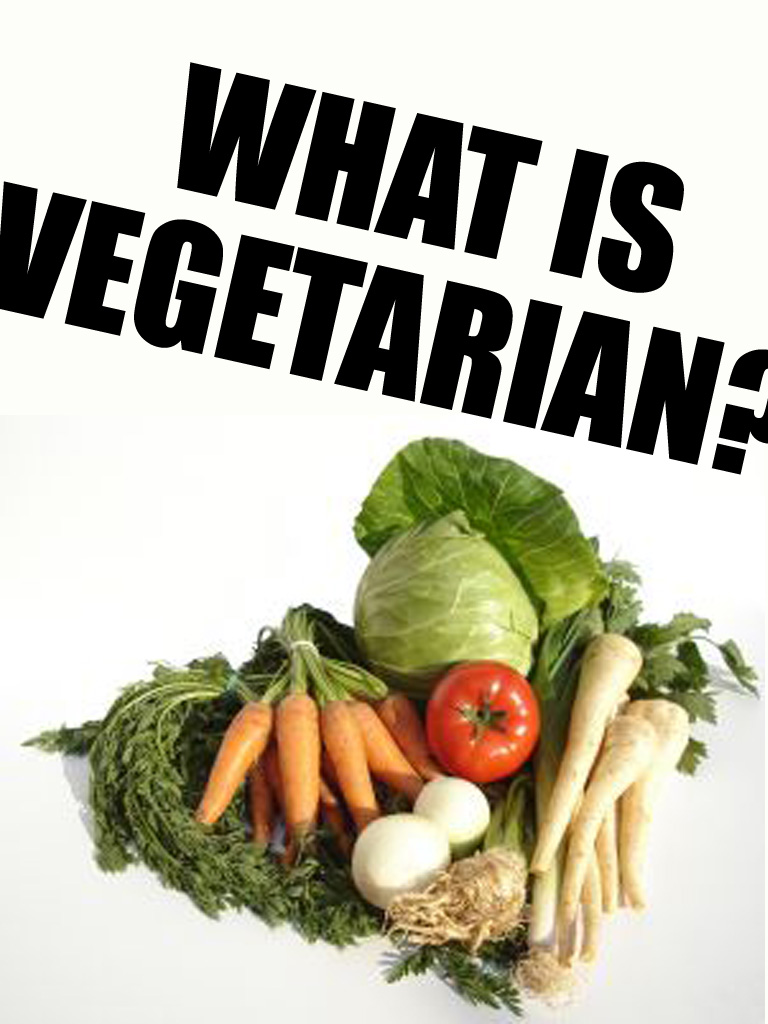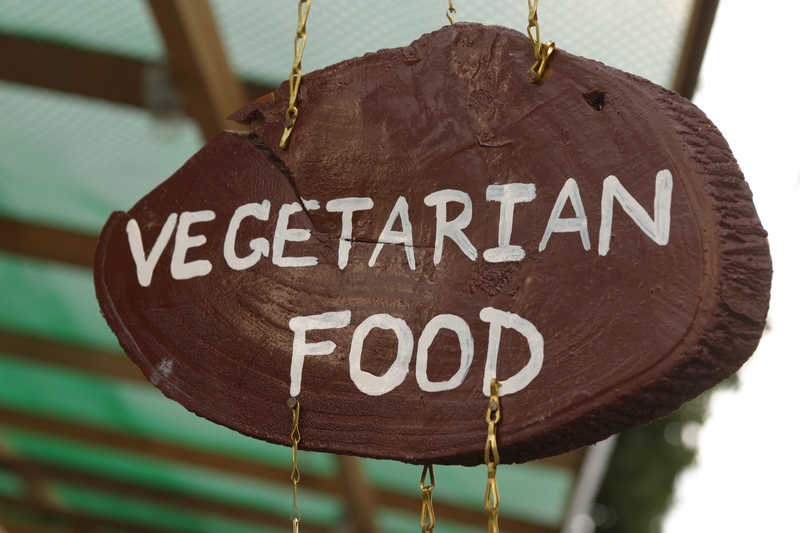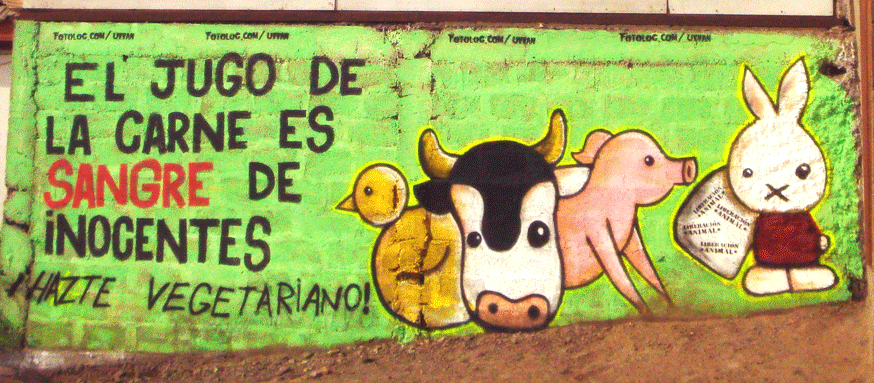Nowadays vegetarian diet has become extremely popular
all over the world. A number of people prefer vegetarian
diet. Actually it is considered that a vegetarian diet
represents a key point to health. According to the
Vegetarian society in UK, 9% of the population in UK and
US are complete vegetarians with the number constantly
increasing.
What is a vegetarian?
There are roughly three types of vegetarian.
Vegans or strict vegetarians exclude all animal products
(e.g. meat, poultry, fish, eggs, milk, cheese, and other dairy
products). Many vegans also do not eat honey.
Lactovegeterians exclude meat, poultry, fish and eggs
but include dairy products.
Lacto-ovovegetarians exclude meat, poultry, and fish
but include dairy products and eggs. Most vegetarians in
the US are lacto-ovovegetarians.”
Advantages of being Vegetarian
Health advantages
The first of these advantages include the benefits reaped
from better health. Becoming a vegetarian is one of the best
things that you can do for your body. There is less chance
of being overweight and there is healthier glow/clearer
complexion. Fruits, vegetables and nuts contain the
necessary minerals and nutrients for your body to properly
function. While meats contain helpful compounds,
including certain types of acids and protein, it is possible
to acquire all of the necessary nutrients without eating any
animal products. Plant sources of protein alone can
provide adequate amounts of essential amino acids if a
variety of plant foods are consumed and energy needs are
met. Fish oil is a common source of Omega 3 essential
fatty acids, but flaxseed and flaxseed oil contain even greater
quantities of it. More fruits and vegetables mean more
vitamins for you. Less meat means fewer toxins and
unwanted hormones in your body. Your immune system
will greatly improve after replacing meat with more greens.
Results of different studies show that people who follow
a vegetarian diet have lower risk of several diseases
like cancer (e.g colorectal cancer, breast cancer), heart
problem, blood pressure, diabetes and strokes. In fact,
Vegetarian diets low in fat or saturated fat have been used
successfully as part of comprehensive health programs to
reverse severe coronary artery disease.
Cardiovascular disease is often connected with a diet full
of saturated fats and cholesterol from meat. The average
person eating a meat-based diet has 50% chance of dying
from a heart disease. If he go vegetarian this decrease to
15%
At age 65, the average woman has a bone loss of 35%. A
vegetarian woman has an average loss of 18%, at the age of
65. This is because a non-vegetarian gets excessively much
protein. At overage, meat eaters get about 150% more
protein each day than they need. Vegetarian diet safeguards
against osteoporosis. Also the lower estrogen levels in
vegetarian women provide higher benefits.
A well-planned vegetarian diet may be useful in the
prevention and treatment of renal disease. Studies using
human being and animal models suggest that some plant
proteins may increase survival rates and decrease
proteinuria, glomerular filtration rate, renal blood flow and
histologic renal damage compared with a non-vegetarian
diet.
Vegetarianism protects you from certain food-borne
diseases such as bird flu, mad cow disease, intestinal
parasites, etc.
According to the American Dietetic Association,
“Vegetarian diets offer a number of nutritional benefits,
including lower levels of saturated fat, cholesterol……. as
well as higher levels of carbohydrates, fiber, magnesium,
potassium, folate, and antioxidants such as vitamins C and
E and phytochemicals.”
Meat is difficult for the body to digest and may putrefy
especially for those who don’t have an active lifestyle, as it
stays in the stomach for longer. On the other hand, different
vegetarian diets are easy to digest, it makes blood sugar
more stable, your energy level will be consistent and you
will not get that fatigue feeling after meals.
You’ll eat fewer chemicals lower on the food chain. The
more chemicals an animal eats, the more you will eat. It can
be clearly understood from the concept of bioaccumulation
and biomagnifications. Bio-accumulation is increase in
the concentration of the chemical substances in an organism
or a part of the organism. Bio-magnification is increase
in the concentration of chemical substances in food chain;
it increases about 10% in each tropic level. The primary
source of nuclear radiation contamination in humans is from
beef and dairy products.
Approximately 30 percent of slaughtered chicken and fish
is contaminated with salmonella. It sickens between 6.5 and
8 million people each year in the US. E.coli, salmonella and
campylobacter bacteria causing food poisoning in
restaurants are usually from animal products that are not
cooked properly, have been sitting too long before being
served,
In 1997, the World Cancer Research Fund (WCRF) and the
American Institute of Cancer Research (AICR)
commissioned a panel of experts from twenty countries to
examine the available evidence on the diet and cancer
connection. In its conclusion it says, various studies have
shown that groups following lacto-ovo, lacto-vegetarian
and vegan diets have decreased incidence of cancers at
several specific sites. Any effect of vegetarian diets is likely
to be due not only to the exclusion of meat, but also due to
the inclusion of a larger number and wider range of plant
foods containing an extensive variety of potential cancer-
preventive substances.
The Disadvantages of Eating Meat
“There are many physical disadvantages to eating meat.
Some of these disadvantages are:
A meat-eater not only takes in the animal cells and
fats, etc. but also the waste products, e.g. chemically
treated food fed to the animals, drugs injected into the
animal in the slaughter house, intoxicants, coloring and
tenderizers sprayed on the dead animal by the market
suppliers.
Meat is one of the major sources of internal pollution.
When an animal is slaughtered, un-eliminated waste
products remain in the tissue of the animal which often
give the meat its stimulating flavor. Uric acid and
adrenaline are secreted into the bloodstream, muscles
of animals and stored. The fear and struggle to escape
death stimulates the secretion of hormones like
epinephrine and norepinephrine. Most animals
(especially cows) are injected with steroids before they
are slaughtered. No edible plant product has similar
toxicity. The human body has to work 15 times more to
get rid of these toxins.
A parasite known for inducing miscarriage, blindness,
jaundice and nervous disorders in newborn babies was
found in samples of animal meat from abattoirs and
markets (particularly in third world countries).
To preserve fish and prawns and other crustaceans,
boric acid is widely used by food manufacturers. It
attacks the liver and the brain, causing fits and coma
before the victim dies of liver damage. Fruits and
vegetables, however heavily sprayed, don’t grow
hormones, antibiotics and other drugs common in meat
products.
Pigs carry trichinosis bacteria that cling to the walls of
the stomach and intestines, which can be fatal. Beef
and pork are highly acid forming and release into the
blood-stream toxic poisons and microbes.”
Spiritual advantages
It is said that different food types embody different
vibrations and there is animals’ consciousness in meat that
is aggressive and restless and when meat of these animals
is taken, their traits transfer to the person who consumes it.
Contrarily, vegetarian foods do not provoke aggression and
restlessness in the eaters. Remember that you are what you
eat. The food taken into your body is what gradually but
surely forms your thought-patterns.
Many religions like Buddhism, Hinduism, Jainism, etc
believe that the vegetarian diet is necessary component for
meditation and attaining God. They believe in non violence.
Animal Welfare
No animal is harmed in order to feed or clothe a vegetarian.
As more people become vegetarian, farming and the meat
production industry will change.
Environmental Issues
Real environmental benefits can be realized by people
reducing their consumption of meat or becoming a
vegetarian. The GoVeg website quotes Environmental
Defense that reports that “if every American skipped one
meal of chicken per week and substituted vegetarian foods
instead, the carbon dioxide savings would be the same as
taking more than a half-million cars off U.S. roads”.
Producing vegetarian foods is a lot easier than looking after
livestock, as it requires a higher percentage of land space
and attention to give. If everyone in North America
reduced their animal food consumption by just 10 percent,
the grain we would save from animal feed could be used to
feed all of the hungry throughout the world (Earth Save).
Poultry operations alone use 96.5 billion gallons of water
annually in the US, enough to meet all water needs of 4.5
million North Americans
Budget
A person leading a vegetarian lifestyle can spend much
less than their meat eating counterparts. Vegetarian food is
often cheaper, this includes both the raw ingredients
purchased from supermarkets and meals taken in restaurants
and other eateries. Meat makes up a significant proportion
of a typical household food bill. By taking meat from the
equation, a large saving can be had. Of course, replacing
meat with expensive vegetarian meat substitutes may not
result in quite the same saving. If a household, however,
replaces meat with lentils and other low cost forms of
nutritious and natural foods, a greater saving will be realized.
Conclusion
So it’s quite clear from above description that being a
vegetarian not only protects but also prevents us from
several chronic and acute diseases. Be it from the spiritual,
moral, energy or environmental point of view, its always
better to be vegetarian. We are sensible creatures so lets
not compromise our well being for just taste, that too can
be obtained from veggie diet.
There are really no disadvantages of being a
vegetarian, only challenges.
References
1. Nina Nik.Health goes up,advantages and
disadvantages of being vegetarian[Internet].2010 Apr
22 [cited 2011 sep 19]. Available from: http://
www.healthgoesup.com/articles/418/1/advantages-
and-disadvantages-of-being-vegetarian-1.html
2. The physical advantages of being vegetarian
[Internet].2011 [cited 2011 sep 19]. Available from:
http://www.celestialhealing.net/physicalveg.htm
3. Isak Ravn. Associated content from yahoo, What are
the benefits and disadvantages of being
vegetarian.[Internet].2009 Mar 12[cited 2011 Sep
19].Available
from:
http://
www.associatedcontent.com/article/1543115/
what_are_the_benefits_and_disadvantage.html?cat=22
4. Vegetarian junction, The advantages of a vegetarian
diet.[Internet]. 2011 Apr 22 [cited 2011 sep 19].
Available from: http://www.vegetarianjunction.com/
becoming-vegetarian/advantages-of-vegetarian-diet/
5. Methods of healing, disadvantages of being a
vegetarian. [Internet].2009 Mar 16 [cited 2011 sep 19].
Available from: http://www.methodsofhealing.com/
disadvantages-of-being-a-vegetarian/
6. Mukherjee Nita. Associated content from yahoo,
Health and other benefits of a vegetarian diet.
[Internet].2009 Jul 22 [cited 2011 Sep 19]. Available
from: http://www.associatedcontent.com/article/
1971866/health_ and_ other_ benefits_ of_ a_
vegetarian_pg3.html?cat=5
7. All health site, Advantages and disadvantages of
being a vegetarian. [Internet]. [cited 2011 sep
19].Available from: http://www.allhealthsite.com/
advantages-and-disadvantages-of-being-
vegetarian.html
8. Crenna Carol. People with compassion,30 reasons to
become vegetarian. [Internet]. [cited 2011 sep
19].Available from: http://animalrightsinfo.tripod.com/
id22.html
9. Vegetarian diet plans, Advantages of being a
vegetarian.[Internet].2011 Jun 12 [cited 2011 sep 19].
Available from: http://www.vegetariandietplans.net/
nutrition/advantages-of-being-a-vegetarian.htm
10. Pullen Kate. Love to know vegetarian, Advantages of
being vegetarianism. [Internet]. [cited 2011 sep




